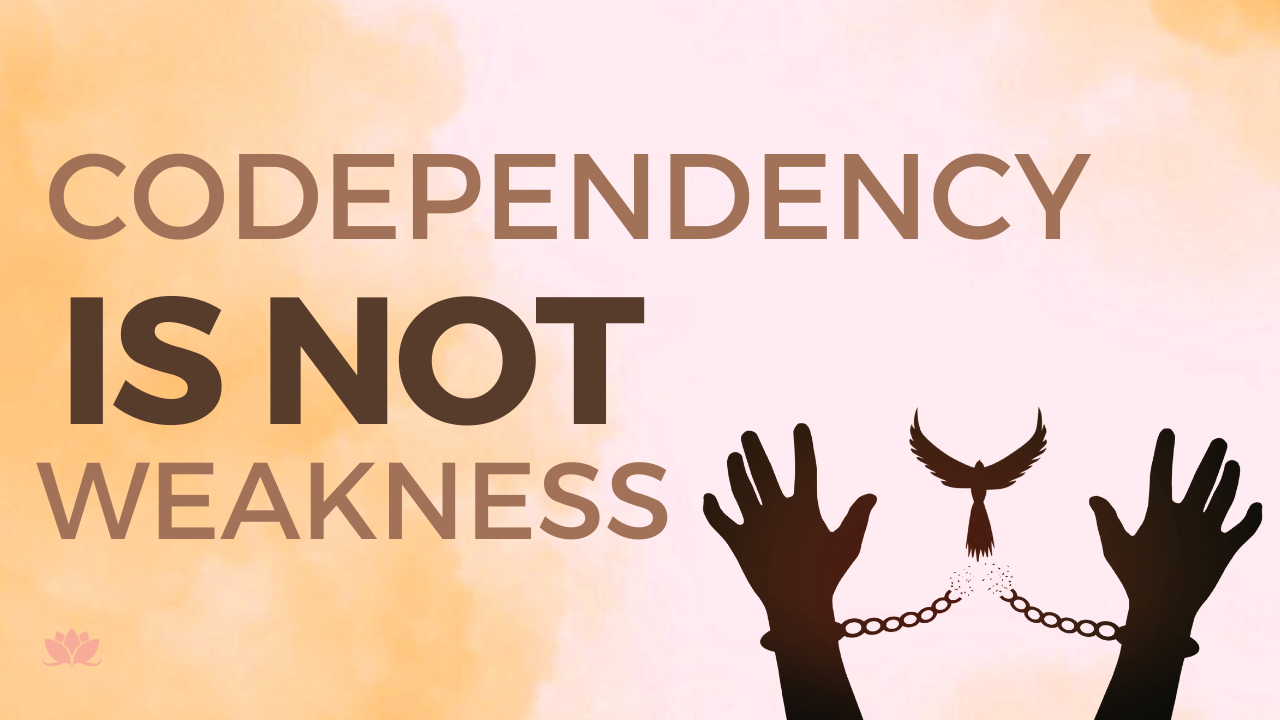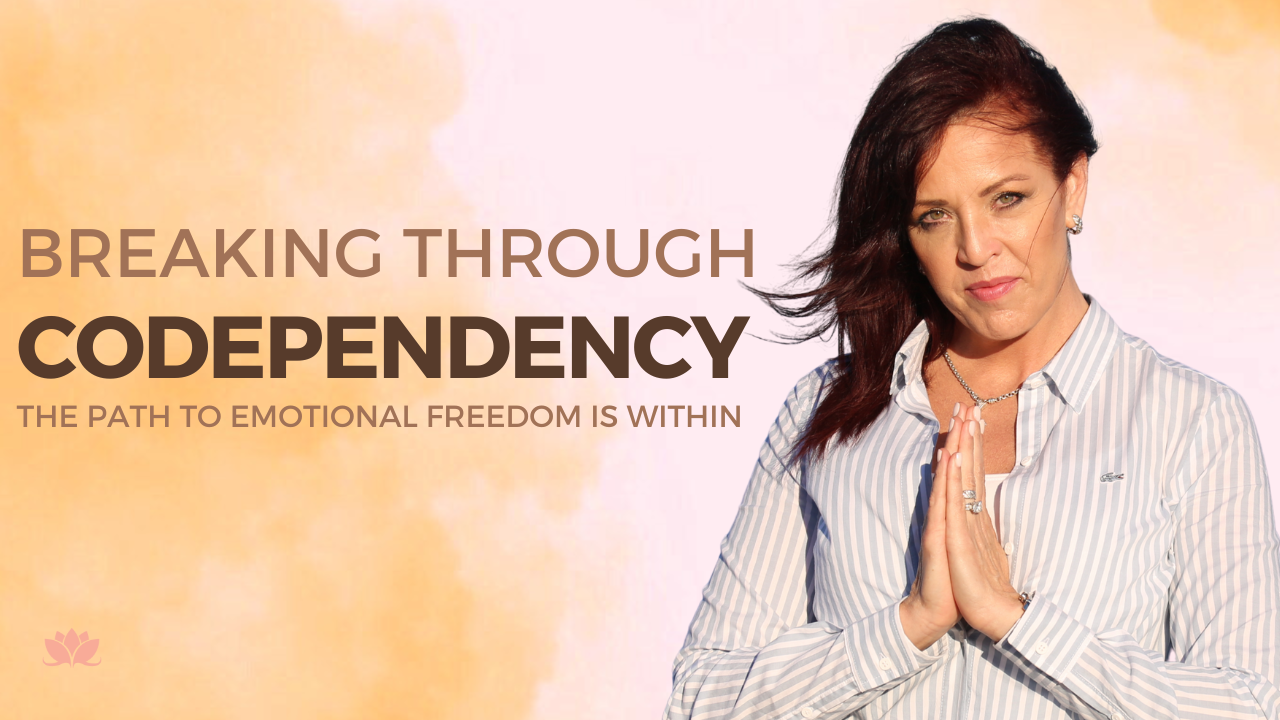How to Be Less Codependent in 7 Days
How to be less codependent in seven days. Codependency is tied to self abandonment, and an inability to identify as well as express authentic emotions. Codependency recovery relies on your willingness to connect with your wounded inner child.


Codependency Recovery
As a codependent wife and mother, Mary tried to pretend her husband's problems weren't problems.
Mary was a client who married a man she tried to keep happy. He was an alcoholic who failed to get help for his alcoholism. Mary did her best to raise her children in a stable home, despite her husband's inability to show up for his children or wife. Like many spouses of alcoholics, Mary stuffed her emotions and denied her needs as a way to avoid upsetting her husband, as well as her children. When Mary and I began coaching, her youngest son had begun drinking heavily, and her older daughter no longer wanted to speak to her.
Codependency is understood as a loss of self. When we are codependent, we struggle to know who we are compared to others. We focus on how other people feel, what they think, need, and want, and what their opinions are of us. We enter into relationships without healthy boundaries, looking to please our partners in the hopes that we can find a way to gain deep connections, avoid pain, and somehow gain love.
Codependency Traits are Subconscious
Mary was confused and felt lost. She thought that she had done everything right for her family. Mary's focus was peace, and so the idea of challenging her husband made no sense to her. "Why should I ask him to stop drinking if all it was going to do was cause a fight?" was her subconscious train of thought. In the end, Mary's inability to set boundaries, along with her husband's alcoholism, led to the disintegration of her family.
When we are codependent, we don't know it. Often we are adults operating from the mindset of a child who has suffered tremendous emotional neglect and often abuse. As children, we learned that it was safer not to say anything and to freeze. Our homes were cold, unpredictable, and void of authentic emotional connections. Our adult relationships mirror our lack of self, poor boundaries, and inability to connect to emotions.
Mary was the oldest daughter of a codependent couple who rarely spoke to one another. Her mother died prematurely, and soon after, her father remarried a woman who emotionally abused her. Mary moved out of her father's house at seventeen and found herself looking for love in all the wrong places. She married the first man who said he loved her, and so began her codependent love story.
Codependency symptoms and traits operate at the subconscious level. Mary could have never known that her marriage would mirror her childhood and that one day, the coping skills she relied on as a child would lead to her family's demise.
Codependent Breakthroughs
Back in 1991, I had just given birth to my second child. I was riddled with anxiety, unhappily married, and often contemplated getting a divorce. At the time, I was obsessed with figuring out how to be what others wanted me to be. I wasn't aware that I feared disappointing those that I loved or that I felt unworthy. When you are codependent, you are stuck in loops of subconscious limited thinking, but you don't know it.
On the surface, I would have never thought that Mary and I were in similar marriages. My ex-husband did not drink. He had no chemical vices I could point to, and yet, I was as lonely, frustrated, lost, exhausted, and confused as Mary. Neither one of us had healthy boundaries or had any idea of how to love the self. We aimed to keep the peace while we pretended everything was perfect, even though we ached inside.
Codependency in men and women reveals itself through a cluster of symptoms which include:
- a need to make others happy
- a focus on others at the expense of the self
- busying ourselves to exhaustion for the sake of others
- rushing to keep the peace by denying problems
- the inability to identify or express emotions
- obsession over what others think
- a need to control others' emotions with a focus on gaining approval and keeping others calm
- intense discomfort when others are unhappy or disapprove of you
- a negative self image
- a need to fix and rescue others
- feeling responsible for other people's emotions, failures, needs, and wants
- the fear that others might find out how unhappy you are
Healing Codependency Hinges on Identifying Codependent Symptoms
At first glance, Mary and I lived very different lives. However, as Mary and I peeled back the layers of her life and exposed her childhood family dynamics, we discovered painful commonalities. Neither Mary nor I felt seen, heard, nurtured, wanted, or understood as children. We each felt un-mothered and emotionally abandoned by our fathers. Our homes were void of authentic intimacy, warmth, and genuine affection. She and I learned to seek approval, deny our emotions, and focus on the needs of others in attempts to gain the love we never received.
Mary's Future is Bright
Today Mary is addressing the root causes of her codependency and is learning to speak her truth confidently and clearly. She has committed herself to living above the veil of consciousness, armed with repeatable steps she can use to set boundaries and restore a natural hierarchy to her relationships with her children. Her husband is now in recovery. Although Mary does not know if her marriage will survive the past 25 years of codependency, she now has a step-by-step roadmap and understands the necessity of breaking the subconscious patterns that kept her stuck for so long.
How You Can Be Less Codependent in 7 Days
If you act on these tips, you will be less codependent in 7 days. In reality, to heal from codependency takes time, effort, tenacity, patience, and courage to peel back the layers of experiences responsible for the negative, limiting subconscious beliefs that arrest our emotional growth. However, here are some repeatable steps you can use to begin your quest to become less other-focused and more self-focused, emphasizing a sense of responsibility to the self.
Day One
- Begin your day with a 20-minute grounding guided meditation.
- Immediately after meditating, identify five goals you have for yourself that day.
- Mark those goals off your list before bed.
Day Two
- Begin your day with a 20 minute positive affirmation guided meditation.
- Immediately after meditating, identify at least one person you are afraid to disappoint.
- Ask yourself, "In what ways do I compromise my happiness for this person?" and journal your answer.
- Do nothing but think about your answer. Don't change your behavior toward this person. Just think about your answer.
Day Three
- Begin your day with a 30 minute self love guided meditation.
- Immediately after meditating, identify at least one person from your past you wish validated you when you were a child.
- Journal about the emotions that come up for you. Do not change your behavior. Just observe what comes up for you.
Day Four
- Begin your day with 20 minutes of yoga stretches and deep breathing exercises.
- Immediately after meditating, identify three areas of your life you would like to see improve.
- Journal about why these three areas are important to you and what it would mean to see them improve.
Day Five
- Begin your day with a guided inner child meditation.
- Immediately after meditating, identify any dreams or goals your inner child had when you were small.
- Journal about those dreams and identify what happened along your path that caused those dreams to be forgotten.
Day Six
- Begin your day with a 20 minute positive mindset-guided meditation.
- Immediately after meditation, identify at least three emotions you wish you could express more authentically to yourself and to others.
- Journal about why you believe you don't express those emotions. What are you afraid of?
- Don't do anything differently. Don't make any major life decisions. Simply observe what emotions and ideas come up for you.
Day Seven
- Begin your day with a 40 positive mindset guided meditation.
- Immediately journal about what changes you can make in your daily routine that could benefit the course of your life.
- Identify at least three key areas of your life you'd like to see improve. Identify three personal and relationship boundaries that might help you gain that level of improvement.
Make these shifts slowly over time, and you will feel less dependent and more independent.
Codependency Recovery Happens Over a Lifetime
Mary and I acknowledge that our codependency recovery journey will unfold over a lifetime. We understand our inner child's wounds, abandonment trauma, conditioned behaviors, and reflexive language has kept us stuck seeking approval and trying to be good enough for others. We also acknowledge how our codependency has impacted our family dynamics. We are mothers who heal for ourselves as well as for our children.
Healing codependency is heroic. It requires that you observe personal traits that are unhealthy, controlling, and destructive. However, you will also discover the divine lost inner child, who had no other choice but to abandon the self as a way to survive. Mary and I are healing our inner children while learning to be empowered adults who seek their own approval these days. Our lives keep improving now that we know how to honor the self, while healing from codependency.
To learn more about codependency coaching and recovery, visit www.lisaaromano.com



